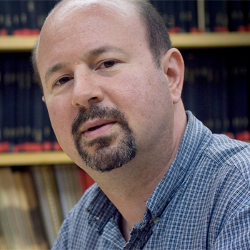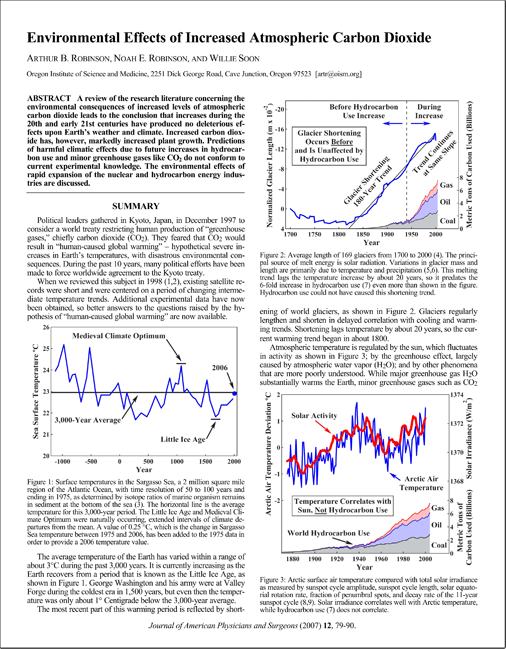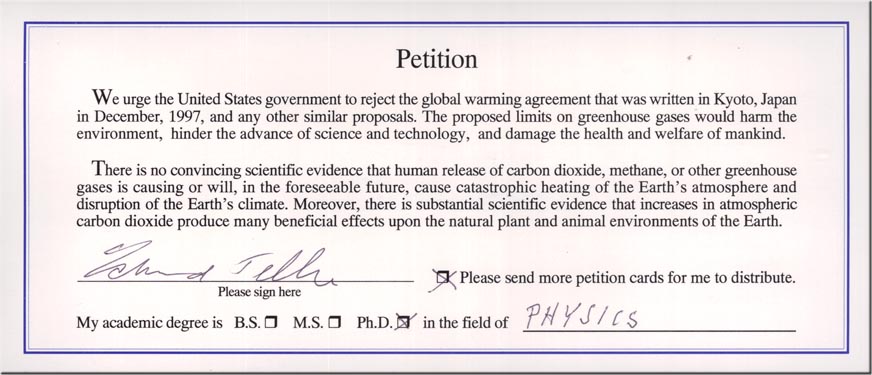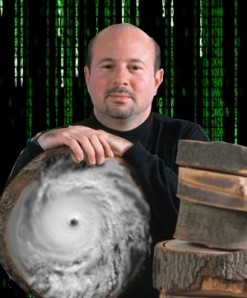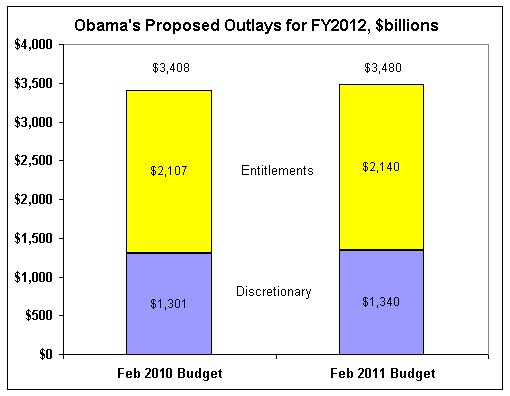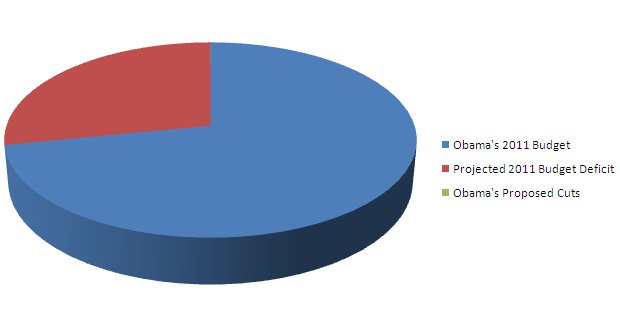04-10-2011

Permalink


Global Warming?
|
Subject: The Origins of Anthropogenic Global Warming
As longtime readers of this site are aware, since 2009, when the
internal documents from the University of East Anglia Climate
Research Unit were first leaks, I have been tracking important
information pertaining to the political ramification of the movement
to establish the man-made production of carbon dioxide as the primary
activity responsible for global warming. All of this material can be
found at the Climategate
in Review website.
An article titled Climate
Models Go Cold, recently published in the Financial Post, contains
the text of a speech given at an Anti-Carbon-Tax Rally in Perth,
Australia, by David
Evans. Mr Evans, a mathematician and engineer who has earned six
professional degrees, consulted with the Australian Greenhouse Office
and Department of Climate Change for nine years, modeling carbon pools
in forest and agricultural systems, which exposed him to the current
state of climate data and resulted in his transformation from a
global warming alarmist to a skeptic.
To summarize, Evans explains how the original idea that carbon dioxide
production was predominantly responsible for the earth's global warming
was based upon a climate model hypothesis formulated in the early 80s,
which by the mid 90s had been completely disproved as a result of three
decades of atmospheric temperature measurements. Here are the details,
with all quotes coming from Evan's essay:
The first point Evan makes is that a significant assumption, folded
into all of the climate models, was based upon an unproven hypothesis
for which there was no corroborating data back in 1980.
|
"Let's set a few things straight. The whole idea that carbon
dioxide is the main cause of the recent global warming is
based on a guess ..."
"Carbon dioxide is a greenhouse gas, and other things being
equal, the more carbon dioxide in the air, the warmer the
planet. Every bit of carbon dioxide that we emit warms the
planet. But the issue is not whether carbon dioxide warms
the planet, but how much."
"Most scientists, on both sides, also agree on how much a
given increase in the level of carbon dioxide raises the
planet's temperature, if just the extra carbon dioxide is
considered. ... The disagreement comes about what happens
next."
"The planet reacts to that extra carbon dioxide, which changes
everything. Most critically, the extra warmth causes more
water to evaporate from the oceans. But does the water hang
around and increase the height of moist air in the atmosphere,
or does it simply create more clouds and rain? Back in 1980,
when the carbon dioxide theory started, no one knew. The
alarmists guessed that it would increase the height of moist
air around the planet, which would warm the planet even
further, because the moist air is also a greenhouse gas."
"This is the core idea of every official climate model: For
each bit of warming due to carbon dioxide, they claim it ends
up causing three bits of warming due to the extra moist air.
The climate models amplify the carbon dioxide warming by a
factor of three — so two-thirds of their projected
warming is due to extra moist air (and other factors); only
one-third is due to extra carbon dioxide."
|
What was now needed was some empirical data to test the hypothesis.
This was provided by weather balloon temperature data.
|
"The alarmist case is based on this guess about moisture in
the atmosphere, and there is simply no evidence for the
amplification that is at the core of their alarmism."
"Weather balloons had been measuring the atmosphere since
the 1960s, many thousands of them every year. The climate
models all predict that as the planet warms, a hot spot of
moist air will develop over the tropics about 10 kilometres
up ... During the warming of the late 1970s, '80s and '90s,
the weather balloons found no hot spot. None at all. Not
even a small one. This evidence proves that the climate
models are fundamentally flawed, that they greatly
overestimate the temperature increases due to carbon dioxide."
|
Evans provides a summary of the atmospheric data in his PDF article,
The Missing
Hotspot, and this is also discussed in two articles by Joanne
Nova titled The Missing
Hotspot and Found:
The Hotspot? Not.
Evans states that the decision to willfully ignore the new data and
continue using discredited climate models was the moment when climate
research stopped being a science and shifted into a well funded
political propaganda machine.
|
"This evidence first became clear around the mid-1990s."
"At this point, official "climate science" stopped being a
science. In science, empirical evidence always trumps theory,
no matter how much you are in love with the theory. If theory
and evidence disagree, real scientists scrap the theory. But
official climate science ignored the crucial weather balloon
evidence, and other subsequent evidence that backs it up, and
instead clung to their carbon dioxide theory — that
just happens to keep them in well-paying jobs with lavish
research grants, and gives great political power to their
government masters."
"There are now several independent pieces of evidence showing
that the earth responds to the warming due to extra carbon
dioxide by dampening the warming. Every long-lived natural
system behaves this way, counteracting any disturbance.
Otherwise the system would be unstable. The climate system
is no exception, and now we can prove it."
|
And the final conclusion?
|
"Even if we stopped emitting all carbon dioxide tomorrow,
completely shut up shop and went back to the Stone Age,
according to the official government climate models it
would be cooler in 2050 by about 0.015 degrees. But their
models exaggerate 10-fold — in fact our sacrifices
would make the planet in 2050 a mere 0.0015 degrees cooler!"
"Finally, to those who still believe the planet is in danger
from our carbon dioxide emissions: Sorry, but you've been had.
Yes, carbon dioxide is a cause of global warming, but it's so
minor it's not worth doing much about."
|
'Nuff said.
[Thanks to Allen
Small for originally bringing the Evan article to my attention.]
|
